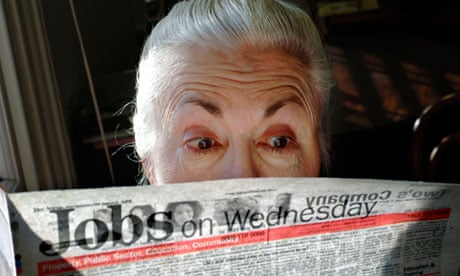So the government is woefully underprepared for our ageing population? This is somewhat surprising given that nearly 60 years ago the then government committee into the economic and financial problems of old age, the 1954 Phillips report, raised concern over the growing numbers of older people, concluding that a rise in pension age was inevitable, recommending 68 for men.
There is thus a strong sense of deja vu in this latest report. We know we have an inappropriate model of health and social care for an ageing population, we know retirement and pensions must be reformed, we know an ageing society affects everyone and we know these issues require open debate and leadership by the government. And yes we know that no UK government so far has had a vision and coherent strategy to holistically address the ageing of our population.
But things have changed since the Phillips report. For much of the last century we were ageing at the same time as the welfare state was expanding. Now for the first time we are ageing as the welfare state contracts. The House of Lords report, Ready for Ageing?, is thus right to emphasise individual responsibility for our old age.
By 2030, men aged 65 can expect to live to 88, and women to 91. Crucially, these will be those who grew up and spent most of their adult lives at a time of expanding UK growth and affluence. There is a – possibly naive – expectation that the lifestyles most of us have come to enjoy during our working lives will be sustainable during our increasingly long post-retirement lives. But many are not saving enough to pay for a decent standard of living over a much longer retirement. People should be allowed to extend their working lives if they wish to do so. In particular, as the report notes, we need to end "cliff-edge" retirement, with flexible and part-time working, reskilling, and gradual take-up of pensions.
Age, however, is no longer a good indicator of people's needs or income, so the government should review whether age alone is a sensible determinant for access to services or benefits. We need a complete shift in societal attitudes towards ageing. Key here will be the final removal of age discrimination – in access to employment, health and social care, services, the market. The downside of this will be the inevitable removal of age-based entitlements and this will surely be opposed by campaigning groups for older people. But it is an essential move to a more age-equal society, with entitlements based on need and not on age per se.
Once upon a time life lasted three score years and ten, a short retirement followed a long working life, and the state provided a pension and free care – albeit often heavily reliant on family support. Now old age is uncertain – some of us will live long lives, but will they be healthy or disabled? Some of us will have the capacity, skills and training to work longer, but many will not. For the first time even the relatively affluent will approach old age still straddled with mortgages, and still financially supporting adult children through paying for their education and housing. If there is one new message from this report it is that old age is a fluid combination of costs and risks. The government has a key responsibility to ensure that we all are better informed about healthy life expectancies, pension projections, the likelihood of needing social care and its cost, and how best to use our assets. Only then can we analyse our own situations and make the necessary informed choices about how to live increasingly lengthy lives.










